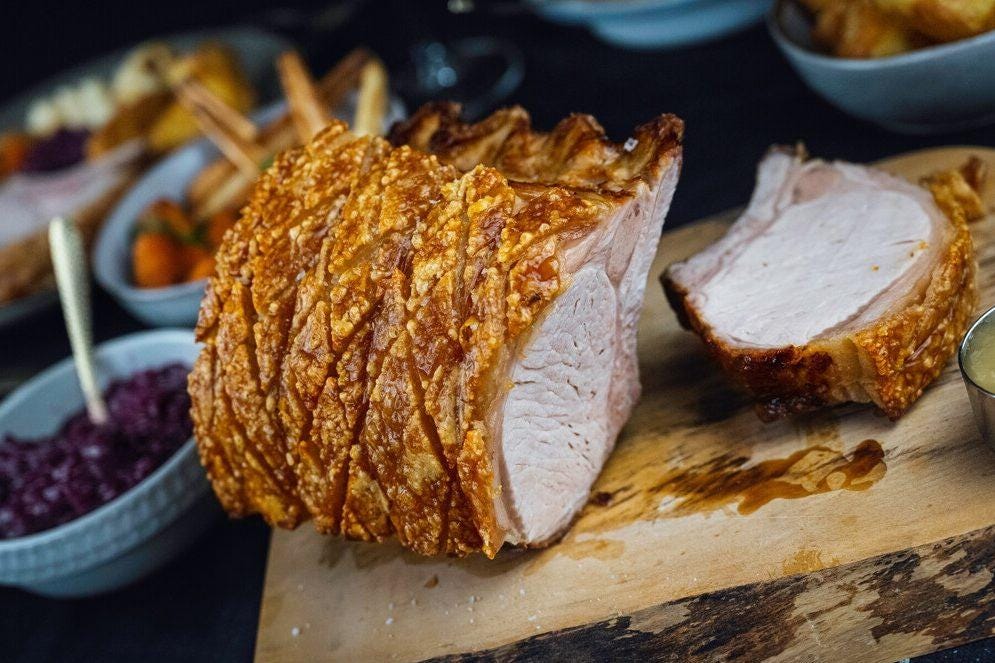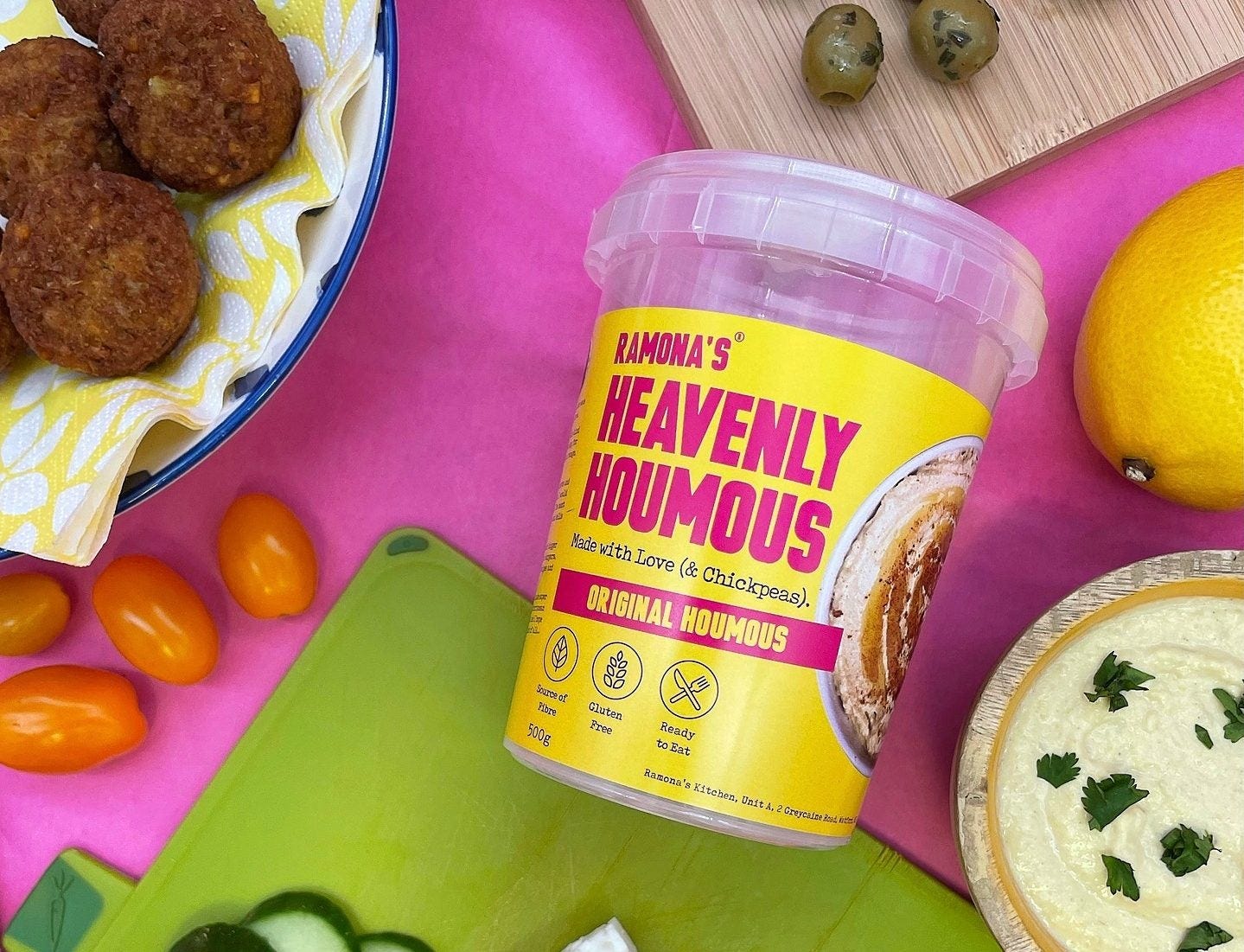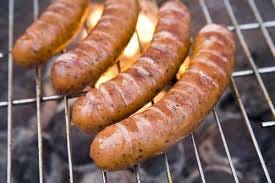Disclaimer: This newsletter is not financial advice this is for educational purposes only so please DO NOT take this newsletter as a buy or sell signal.
Cranswick PLC Fundamentals:
Below is a checklist I normally use in my process when I look at the fundamental health of a company. If the company meets my criteria it will be colour-coded in green and if the company fails to meet my criteria it will be colour-coded in red which means I need to investigate further and ask myself why this is the case.
As you can see below there are 4 red boxes and I am going to explain them:
Current PE Ratio- Cranswick currently has a PE Ratio of 17x which might be an indicator that this company is currently trading at a premium to the market since the average stock market PE Ratio is 15x. One thing to remember is if a company can grow 17% from now until judgment day and it can sustain that growth then the current valuation will look cheap. This goes for the opposite side of the spectrum where if a company was trading at 15x earnings and they are only growing 3% a year that might seem expensive because the company can’t justify its valuation.
5-Year Average Profit Margin- When analysing a company I want to see a 5-year average profit margin above 10%, however, because this company operates in an industry where margins are very low I am not going to penalise them for this.
Shares Outstanding- When analysing a company I ideally want their shares outstanding to be the same or to decrease over time. As you can see, Cranswick shares outstanding have gone up by 3.85% in the last 5 years. This is minuscule and it is something I am not too concerned about.
Free Cash Flow Yield-Free Cash Flow Yield gives investors another way to assess the value of a company. Free cash flow yield provides a better measure of a company's performance than the PE ratio because earnings can be manipulated based on accounting rules. The most common way to calculate free cash flow yield is free cash flow divided by the company market cap. Generally, the lower the ratio, the less attractive a company is as an investment because it means investors are putting money into the company but not receiving a very good return in exchange. A high free cash flow yield result means a company is generating enough cash to easily satisfy its debt and other obligations including dividend payout. Currently, Cranswick’s free cash flow yield is 3% which is lower than my 7% threshold and lower than the risk-free rate which currently sits at 4.1%. It is important to remember when the treasury yield is yielding higher than a company’s earnings/cash flow, according to the intelligent investor this means you are not being compensated for the extra risk you are taking with an individual business.
Business Overview:
Founded in 1972 by Jim Bloom, Mike Field and twenty-one other Yorkshire farmers, Cranswick is a leading UK food producer and supplier of premium, fresh and added-value food products. Cranswick produces fresh pork, gourmet sausages, cooked meat, air-dried bacon, premium cooked poultry, charcuterie, sandwiches and gourmet pastry products. The Company's brands include Bodega, Weight Watchers, Woodall's, Simply Sausages, Red Lion Foods and The Black Farmer. Cranswick's core market is the UK but the company has a rapidly developing export business serving the European, US and South East Asian markets. The company also offers snacks and sharing boxes under the Bodega brand, olives, olive oil, and pulses under The Cypressa brand, Mediterranean foods under the Ramona’s Kitchen brand name, and pet food and supplies under the Vitalin and Alpha Feeds brands.
Business Segments:
Food Segment
Fresh Pork- Cranswick has a full range of fresh pork products, from joints and chops to ribs. Innovation is at the forefront of Cranswick’s product offering as it tries to meet the changing needs of its consumers. In 2023 Fresh Pork revenue represents 26% of the group revenue. Revenue increased as a result of higher average UK pig prices. The average UK standard pig price closed the year at a record high of 214p/kg which is 45.6% higher than the opening price of 147p/kg. This significant movement in pig prices reflected a sharp increase in feed costs following the war in Ukraine with wheat and soya prices reaching all-time highs. These higher input costs alongside more widespread inflationary cost pressure pushed the pig price rapidly up to 200p/kg by the end of the first half. The pig price remained at this level throughout the third quarter before increasing further in the fourth quarter.
Convenience- Convenience incorporates Cranswick’s three cooked meats sites and continental products businesses. The company product range includes sliced cooked meats produced for retailers and food-to-go operators and a range of ‘slow cook’ and ‘sous-vide’ prepared meals for consumers. Continental products include an expanding range of Mediterranean-inspired products, including charcuterie, olives and antipasti and the recently acquired Ramona’s and Mediterranean Foods businesses which produce houmous, dips and other Mediterranean snacks. In 2023 convenience revenue represented 38% of the group revenue. Revenue growth reflected ongoing inflation recovery and continued progress in expanding the range offered by the continental products portfolio of businesses, with volumes ahead of the prior year. Cooked Meat revenue growth reflected proactive inflation recovery and a strong performance from the ‘slow cook’ and ‘sous vide’ ranges as these products continue to meet the changing needs of consumers who are increasingly demanding more convenient high-quality meals at home. This year, range expansion included centre-of-plate ‘slow cook’ Christmas products including Turkey Crown, Three Bird Roast, Beef Rump and Slow Cook Gammon, with over 400,000 units supplied over the Christmas period. The ongoing £8 million investment at the Hull Cooked Meats facility will double ‘slow cook’ capacity, enabling the company to drive further growth in this attractive, fast-growing category. At the Milton Keynes facility, a £10 million extension is nearing completion. This will provide opportunities for further expansion with added production capacity and additional packing capability enabling the site to increase food service and wholesale volumes. Investment in the Bury site has continued at pace with £3 million spent on increasing olive, antipasti and charcuterie production capacity. A further £3 million was deployed on new manufacturing capability including state-of-the-art robotics to increase the quality and efficiency of production. Innovation and sector expertise will continue to drive growth in this category.
Gourmet Products- Cranswick long-term relationships with passionate Cranswick Food Heroes helped to develop their Gourmet Products sites which focus on delivering authentic, premium products from efficient, well-invested sites. In 2023 Gourmet Products revenue represented 17% of the group revenue, underpinned by strong volume growth. Sausage revenue grew strongly with robust retail volumes driven by tier expansion and product innovation with premium and discount retailers. The continued recovery of food service volumes also contributed to revenue growth with more breakfasts being consumed at home. Cranswick has invested £8 million into their Hull facility to add new alginate casing capability and deliver process improvements.
Poultry- Cranswick has created a unique supply chain in the UK market through the Cranswick Poultry businesses. The company’s Fresh Chicken business produces whole and portioned poultry products as well as seasonal, flavoured ranges. Cranswick Fresh Chicken site also supplies other facilities within the group to create further added-value products. The company’s cooked poultry operation supplies premium products to retail and food-to-go customers, and the prepared poultry site offers a range of premium, prepared chicken products to retail and quick-service restaurants. In 2023 Poultry revenue represented 18% of the Group revenue. Fresh Poultry performed well with an average of 1.3 million birds processed per week.
Other Segment
Pet Products- Cranswick Pet Products manufactures a range of dried dog food for several established retail brands as well as its own Vitalin and Alpha brands. Cranswick has embarked on an investment plan to broaden the range of products offered and increase the capacity of its site. Cranswick Pet Products (formally known as Grove Pet Foods) represented 1% of the Group revenue. Significant progress has been made in reshaping the business for the future. Following a strengthening of the management team, the principal manufacturing site in Lincolnshire has gained British Retail Consortium approval and a multi-year capital investment programme has commenced. The first phase of this investment costing £9 million is underway and will provide increased capacity for dry dog food and increase the site’s automated packing capability. The business recently agreed to manufacture a range of established private-label products for Pets at Home. Pets at Home is the largest specialist pet retailer in the UK with over 450 stores. This partnership, alongside reinvigorating the business’s existing Vitalin and Alpha dog food brands will support the ongoing strategic development of the business and accelerate the company’s ambition to develop pet products into a leading British pet food manufacturer.
Management:
When looking at management I like to judge the CEO in several different ways such as experience, capital allocation skills and Incentives. In this section, I will cover whether management incentives are aligned with shareholders.
Experience- Adam Hartley Couch has been the Chief Executive Officer of Cranswick since 2012. Adam Hartley Couch has over 23 years of experience in the food industry. where he was the Managing Director of the fresh pork operations of Cranswick from 2003 to 2011, Executive Director since 2003 and a board member of BPEX(The British Pig Executive) from 2005 to 2013. Adam Hartley Couch holds a degree in finance and accountancy from the University of Hull.
Below is an image illustrating the current experience of Cranswick board members:
Capital Allocation-When it comes to judging management I think capital allocation skill is very important because I want management to create shareholder value and not destroy it. So far Cranswick capital allocation has been spot on because they are giving value back to shareholders via reinvestment back into the business to further expand their facilities and paying a dividend.
Cranswick is currently paying a dividend with a yield of 2.09%. As shown below this dividend is sustainable because the current dividend only takes up 49% of their overall free cash flow.
Incentive- This is important because if the current board is actively purchasing stock of their own business this is a positive indicator that shows that management believes the stock is undervalued and they believe in the long-term prospect of the company.
As you can see below we have 0 buy orders and 1 sell order. Christopher Aldersley(COO) is the only insider selling but I am not going to put too much weight into this because there are so many reasons why someone might sell their stock.
Bull And Bear Case:
Bull Case
Bull Case- The first bull case is a long runway for growth. Cranswick has made several investments such as:
£62m multi-phased expansion of Hull Fresh Pork facility.
£11m Cooked Meats capacity and efficiency enhancement.
£7m upgrade of Riverside Fresh Pork retail packing facility.
£3m investment in Fresh Pork robotic automation.
£3m retail packing upgrade at Gourmet Bacon.
£23m investment in new Worsley houmous facility.
£9m investment to double the ‘slow cook’ capacity at Hull Cooked Meats.
£7m investment to increase roasting and cooking capability at Cooked Poultry.
£10m first stage investment in expanded dry pet food production at Pet Products.
Bull Case-The second bull case is growth by acquisition. Diversification enables the company to identify new markets that will create further growth opportunities. Whilst Cranswick is firmly established in major fresh food categories, opportunities to move into new markets will continue to be explored. In 2022, Cranswick entered a new market by acquiring Cranswick Pet Products (previously known as Grove Pet Foods), a UK-based producer of dry pet food.
Bear Case
Bear Case-The first bear case is a disease outbreak. The company continues to closely monitor the risk of African Swine Fever and Avian Influenza. African Swine Fever is a disease within pigs that is transferred directly from animal to animal through infected feed, clothing, equipment and vehicles. If African Swine Fever arrives in the UK, this could significantly impact the company’s operations and its ability to export overseas for a sustained period of time. Cranswick recognises that the risk of discovering African Swine Fever within the UK remains possible due to non-commercial or illegal imports and will therefore continue to closely monitor cases. During the year Cranswick has thoroughly reviewed its farm bio-security protocols and worked with industry bodies to identify further mitigation strategies. This year the UK has faced the largest-ever outbreak of Avian Influenza in commercial and domestic birds which has escalated rapidly and continues to pose a significant threat to the company’s poultry supplies.
Bear Case-The second Bear case has to do with the cyclicality of the business. Cranswick is uniquely exposed to issues associated with the pricing and availability of pig meat. An increase in pig prices or a lack of availability of pig meat could adversely impact the company’s operations and the ability to supply key customers.
Valuation:
In this section, I am going to talk about valuation. Using some basic metrics I am going to compare Cranswick against its industry rivals and see if the company is cheap relative to its peers then I will value Cranswick using a discounted cash flow model to come up with a price I am willing to pay based on expected growth rate and my desired return of 15%.
As shown below when comparing Cranswick against its peers it scores 2/5 whilst Hilton Food Group also scores 2/5. Both are high-quality companies but Cranswick steals this one based on better fundamentals and management.
As you can see based on my conservative assumption, Cranswick is looking to grow mid-single digit so I went conservative and assumed a 5% growth in the first 1-3 years then the growth will slow down to 2% 4-6 years out. In my assumption, I also went with an exit multiple of 12x earnings which is below the historical average that Cranswick has traded at. Based on my assumption I have come to a buy price of £14.91p compared to the current stock price of £39.00p which means right now Cranswick is trading above intrinsic value.
Thanks for reading my newsletter on Cranswick PLC. Disclaimer This newsletter is not financial advice This is for educational purposes only so please DO NOT take this as a buy or sell signal.
Follow for more:
Don’t forget to subscribe, share and leave a comment below if you found this newsletter insightful as it helps support my work.









![Alpha Adult Maintenance Working Dog Food - Beef 15kg [Zero VAT] Alpha Adult Maintenance Working Dog Food - Beef 15kg [Zero VAT]](https://substackcdn.com/image/fetch/$s_!dXx2!,w_1456,c_limit,f_auto,q_auto:good,fl_progressive:steep/https%3A%2F%2Fsubstack-post-media.s3.amazonaws.com%2Fpublic%2Fimages%2F60bd0801-5e72-4e04-ac53-49a9f12a60d3_800x850.jpeg)





Great write up once again. Although I do wonder if the food sector can maintain a “meat oriented” approach heading into the future. You already see a lot of people heading for more plant based or organic products